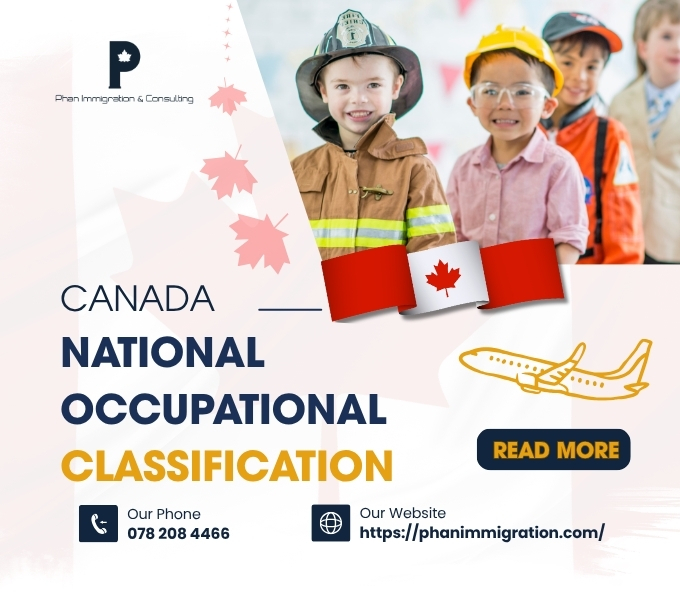Are you currently working in the agriculture and food sector and want to settle in Canada? The Agri-Food Immigration Pilot (AFIP) offers a great opportunity – one of several key streams under Canada skilled immigration. In this article, Phan Immigration provides detailed information about the eligibility requirements and the list of qualifying occupations, helping you assess whether you qualify to apply.
What is the Agri-Food Immigration Pilot?
The Agri-Food Immigration Pilot (AFIP) is a Canadian immigration program designed to attract experienced workers in the agriculture and food sectors. The goal is to address labor shortages while providing foreign skilled workers with a pathway to permanent residency in Canada.
Currently, the AFIP has reached its 2025 quota of 1,010 online applications, and it is no longer accepting new submissions online. Only alternate format submissions are accepted until May 14, 2025.
Additionally, IRCC announced a cap of 1,010 applications for 2025. As of January 1, applications are processed first-come, first-served. If your application is refused due to reaching the annual cap, your fees will be refunded.
Key highlights of the AFIP include:
- Focus on essential roles in agriculture and food processing.
- Enables experienced workers in these sectors to become Canadian permanent residents.
- Allows families to immigrate and build a new life in Canada.

Eligibility Requirements for the Agri-Food Immigration Pilot
To apply for AFIP, you must meet the following:
- Have a valid job offer in Canada. If residing in Canada at the time of application, you may meet either this or the education requirement.
- Meet or exceed the minimum education requirement. If residing in Canada, you may meet this or the job offer requirement.
- Have eligible work experience.
- Meet or exceed the minimum language requirement.
- Demonstrate sufficient settlement funds to live in Canada.
Work Experience Requirement
You must:
- Have at least 1 year of full-time, non-seasonal work in the last 3 years, equivalent to 1,560 hours.
- Work experience must be in one or more eligible occupations listed under AFIP.
- Experience must be gained through:
- An open work permit for vulnerable workers, or
- A Labor Market Impact Assessment (LMIA)-based work permit under the Temporary Foreign Worker Program (TFWP) valid for at least 12 months.
- If you’re unsure about your LMIA duration, ask your employer
You must submit documents to IRCC to prove your work experience:
- Reference letter from your employer or union (for unionized jobs)
- Job offer letter
- T4 tax slips
- Pay stubs
If you currently have an open work permit but previously had an LMIA-based permit under the TFWP, that past experience may be eligible. However, any work experience obtained while holding a general open work permit is not eligible, unless obtained under an open permit issued for vulnerable workers.
How your hours are calculated:
- Count full-time paid hours:
- Can be from different eligible occupations and employers.
- Must span at least 12 months (even if you work more than 30 hours/week).
- Do not count:
- Unpaid work (volunteering or unpaid internships)
- Self-employment
- Part-time or seasonal jobs
- Work not authorized by IRCC
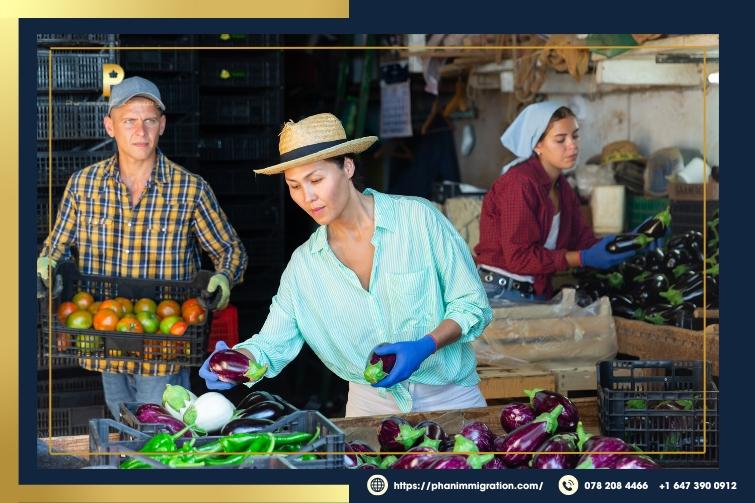
Language Requirements
You must demonstrate proficiency in English or French at a minimum of CLB/NCLC Level 4 in reading, writing, listening, and speaking.
- Submit valid results from an approved language test.
- Test results must be less than 2 years old at the time of application.
Education Requirements
If applying from within Canada: meet either the education or job offer requirement.
If applying from outside Canada: meet both the education and job offer requirements.
You must have:
- A Canadian high school diploma, or
- An Educational Credential Assessment (ECA) from a designated organization showing you completed secondary education or higher outside Canada.
- The ECA must be issued within 5 years of your application.
- The ECA report must be issued on or after the date the organization was designated.

Job Offer Requirements
If applying from within Canada: meet either the job offer or education requirement.
If applying from outside Canada: meet both.
Your job offer must:
- Be in an eligible occupation listed in the program
- Be full-time – minimum 30 paid hours/week
- Be non-seasonal – year-round with regular, scheduled hours
- Be permanent – no set end date
- Be located in Canada, outside Quebec
- If unionized: wage must follow the collective agreement
- If not unionized: wage must meet or exceed the median provincial or national wage listed on Job Bank
Proof of Settlement Funds
You must prove you have sufficient funds to support yourself and family members (even if they aren’t accompanying you to Canada).
If you are already working in Canada on a valid work permit, you are not required to submit proof of funds.

Eligible Sectors and Occupations under the Agri-Food Immigration Pilot
Eligible Sectors
The sectors are classified under the North American Industry Classification System (NAICS). When issuing a job offer to you, your employer must specify the NAICS code. The eligible sectors for the AFIP program include:
- Meat product manufacturing (NAICS 3116)
- Greenhouse, nursery and floriculture production, including mushroom production (NAICS 114)
- Animal production, excluding aquaculture
- Cattle ranching and farming (NAICS 3116)
- Hog and pig farming (NAICS 1122)
- Poultry and egg production (NAICS 1123)
- Sheep and goat farming (NAICS 1124)
- Other animal production (NAICS 1129)
In addition to AFIP, candidates may also consider the SINP Canada pathway – another strong option for skilled agricultural and food workers seeking permanent residency.
Likewise, northern settlement routes such as the Immigrate to Northwest Territories program are excellent choices for those seeking employment and long-term residency opportunities in Canada’s Arctic region.
Eligible Occupations under the Program
The following occupations are eligible to apply under the Agri-Food Immigration Pilot:
Occupations in meat product manufacturing (NAICS 3116):
- NOC 63201 – Retail and wholesale butchers
- NOC 65202 – Retail and wholesale meat cutters and fishmongers
- NOC 94141 – Industrial butchers and meat cutters, poultry preparers and related workers
- NOC 82030 – Agricultural service contractors and farm supervisors
- NOC 84120 – Specialized livestock workers and farm machinery operators
- NOC 85100 – Livestock labourers
- NOC 95106 – Food and beverage processing labourers
Occupations in greenhouse, nursery, floriculture production, including mushroom production (NAICS 114):
- NOC 82030 – Agricultural service contractors and farm supervisors
- NOC 84120 – Specialized livestock workers and farm machinery operators
- NOC 85100 – Livestock labourers
- NOC 85101 – Harvesting labourers
Occupations in animal production, excluding aquaculture:
- NOC 82030 – Agricultural service contractors and farm supervisors
- NOC 84120 – Specialized livestock workers and farm machinery operators
- NOC 85100 – Livestock labourers
- NOC 85101 – Harvesting labourers

How to Apply for the Agri-Food Immigration Pilot
Check Eligibility
First, you must ensure that you meet all the eligibility requirements for the AFIP program. If you do not meet all the requirements, your application will be refused by IRCC.
Prepare Your Application
Next, sign in or create an account on the Permanent Residence Portal and submit your application online. You will need to complete forms and prepare documents as follows (refer to the [IMM 0117] instruction guide to help you fill out the forms correctly):
Forms for the applicant:
- Digital forms: Complete these digital forms online for yourself and any family members aged 18 or over:
- Generic Application Form for Canada (IMM 0008)
- Schedule A – Background/Declaration (IMM 5669)
- Additional Family Information (IMM 5406)
- Supplementary Information – Your Travels (IMM 5562)
- PDF forms: You must complete and upload these to your online application. These do not require signatures.
- Document Checklist [IMM 0116]
- Schedule 1 – Agri-Food Pilot [IMM 0114]
- PDF forms that must be completed and signed if applicable to your situation: These forms must be completed, printed, and signed by the applicant and third party, then scanned and uploaded to your online application.
- Statutory Declaration of Common-law Union [IMM 5409]
- Declaration from Non-Accompanying Parent/Guardian for Minors Immigrating to Canada [IMM 5604]
Forms for the employer (if applicable):
The applicant’s employer must complete the form below, print, sign it, and provide a copy to the applicant.
The applicant must read the declaration at the bottom of the form and sign it. Then, scan the signed copy and upload it to your online application.
- Offer of Employment to a Foreign National – Agri-Food Pilot [IMM 0115]
You must also include 1 photo for each person included in your application. Follow the instructions in the online application to scan and upload both sides of the photos.
Prepare your complete application package for AFIP as instructed.
Pay the Application Fees
Application fees for the Agri-Food Immigration Pilot start at $1,525.
In most cases, you must pay the following fees:
- Processing Fee: Payable for yourself and any family members included in your application.
- Right of Permanent Residence Fee: Payable when your application is approved.
- Biometrics Fee: Typically paid when submitting your application. Failure to pay may delay processing. This fee covers fingerprint and digital photo collection.
- Third-party Fees: Depending on your situation, you may need to pay third parties for: medical exams, language tests, Educational Credential Assessments (ECA), etc.
Submit Your Application
You can submit your AFIP application through the following methods:
- Online: Access IRCC’s website and create an account to submit online.
- By mail: Send your application to the address designated by IRCC.
Before submitting, make sure you:
- Answer all questions
- Attach your fee payment receipt
- Upload all supporting documents
- Electronically sign your application (type your full name exactly as it appears in your passport)
As the principal applicant, you must electronically sign the entire application, including that of any family members. Additionally, submitting a complete application helps avoid delays. If your application is incomplete:
- IRCC will refuse it and return it to you
- You will need to correct the issues and re-submit your application for review
If you’re exploring other immigration options beyond AFIP, visit our Canada immigration overview for a complete comparison of programs, requirements, and timelines. You may also want to learn more about the Yukon Immigration Program, which offers attractive opportunities for workers and entrepreneurs looking to settle in northern Canada.
The Agri-Food Immigration Pilot is a great opportunity for individuals with experience in agriculture and food-related industries to immigrate to Canada. By meeting the program’s requirements, you can turn your dream of moving to Canada into reality. Therefore, carefully review the information shared above by Phan Immigration and start preparing your application now to not miss this valuable opportunity.

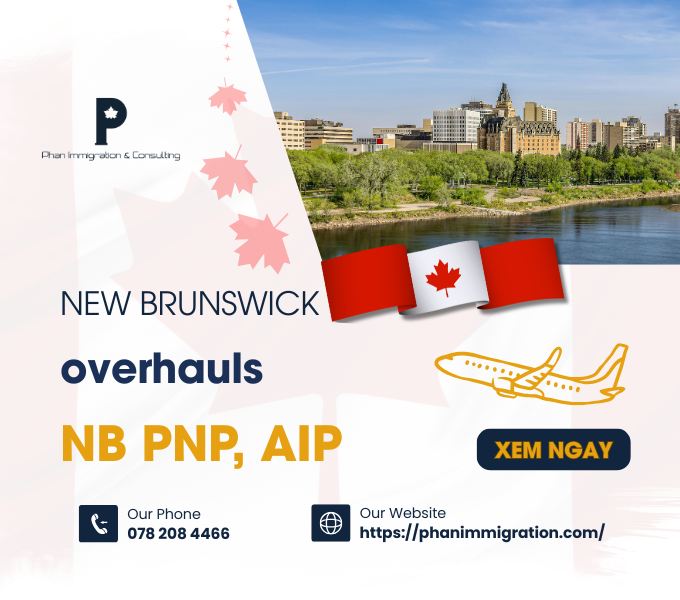
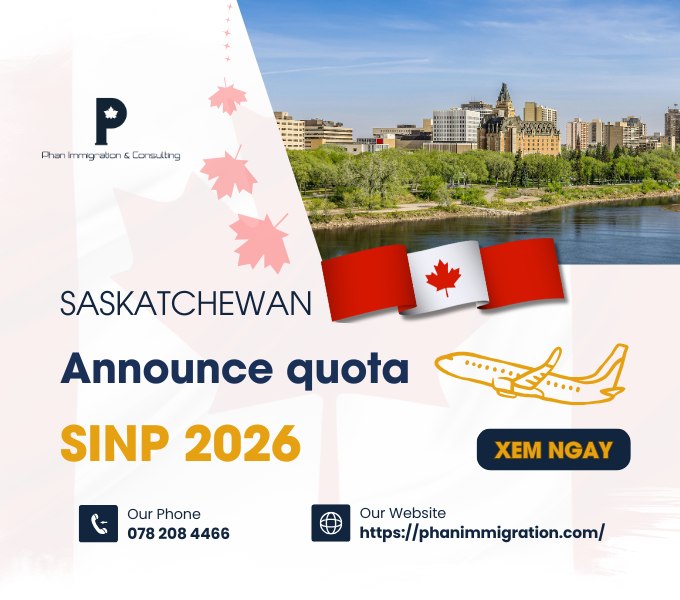
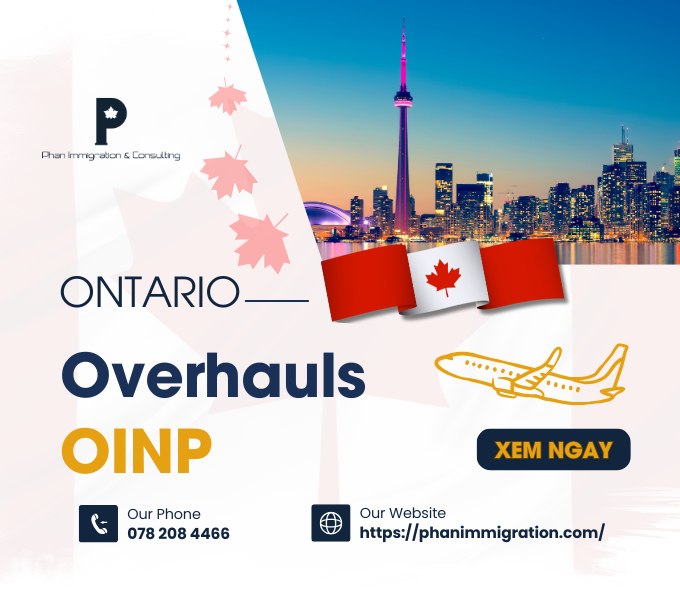
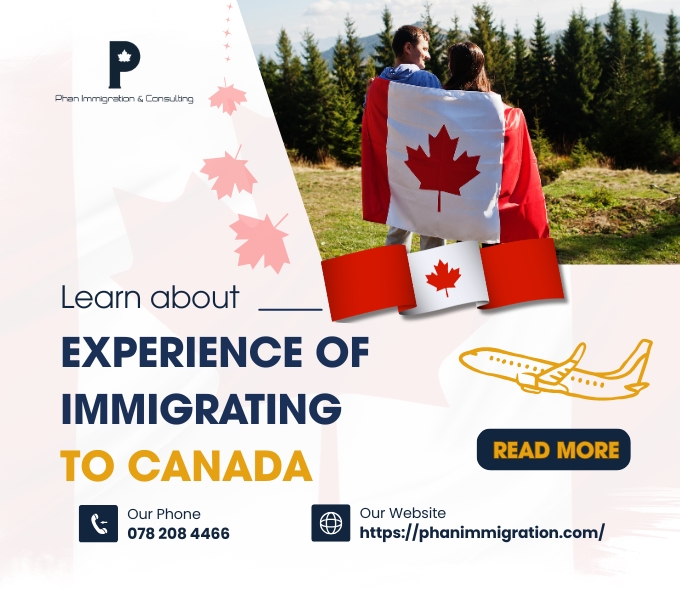
![[Phan Immigration Answers] How Much Money Can You Bring When Immigrating to Canada?](https://phanimmigration.com/wp-content/uploads/2025/06/how-much-money-can-you-bring-when-immigrating-to-canada-thumbnail.jpg)
